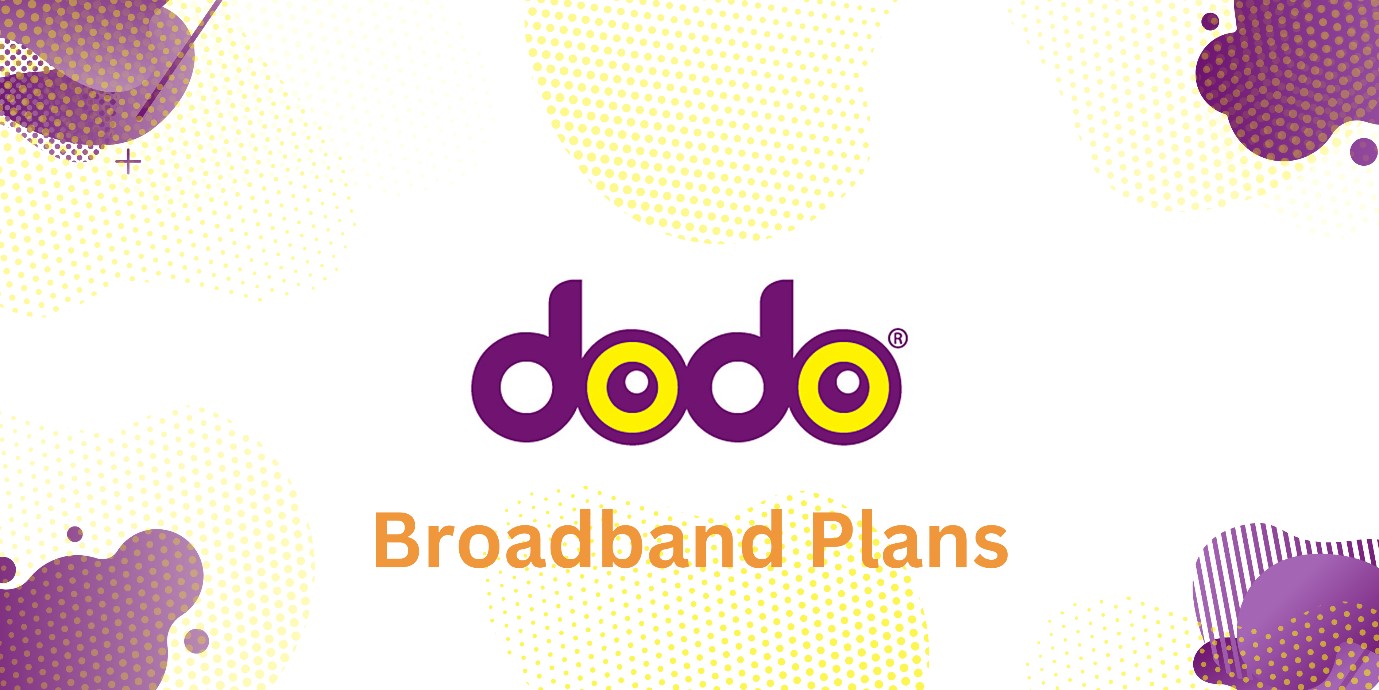A reliable, fast internet plan is an important part of running a business in 2023. Whether you need it for your POS system, virtual meetings or an essential element of your marketing plan, your business relies on its wireless or NBN connection to keep things going.
In Australia, there are two options from business internet providers that stand out from the rest – Fibre and NBN connections. In this article, we’ll look at each option, including the benefits and limitations, so you can make an informed decision about which is the right choice for your internet broadband plans.
Understanding Business Internet Plans NBN
The National Broadband Network (NBN) is a high-speed internet solution for both homes and businesses throughout Australia. If you are considering an NBN connection, the first step is to make sure that new NBN connections are available in your area, and which NBN connection type you have access to.
Other things you should consider are the best NBN providers for business available in your area, including the cost of their NBN plans, any other business solution inclusions they offer, such as phone lines and Cloud services, their network reliability, customer service and technical support.

Benefits of Business NBN Plans
Businesses that connect NBN enjoy a range of benefits. We will discuss some of the highlights below.
- Fast upload and download speeds
Businesses can enjoy improved work speeds from their broadband connection with downloads from as little as 12 Mbps for sole traders up to a super fast 1000Mbps for larger businesses, depending on your chosen plan.
- Unlimited NBN plans
Most internet providers offer unlimited NBN plans for businesses, which means you will never be surprised by excess data fees or lose productivity due to slowed-down speeds when you reach your data cap.
- Enhanced video conferencing
With a reliable NBN connection, your connectivity with team members or clients will be smooth with high-quality video, free from buffering,
- Seamless data transfer
Whether to upload videos, stream live to social media or keep your website up to date, a new nbn connection gives businesses the ability to quickly and effortlessly transfer large amounts of data to enhance their marketing efforts.
- Affordable plans
The best NBN plans vary in price depending on the speed and business solutions you choose. There are several affordable options that include high-speed modems, internet security software, business phone solutions and dedicated business support. Take a look at the bottom of the page for some of our favourite choices in our NBN plan comparison.
Limitations of Business NBN Plans
While an NBN connection is often lauded as the gold standard of Australian internet, there are some limitations to its use in a business setting.
- Network congestion
The NBN works through a shared connection, which means that a large number of users connecting simultaneously in a specific area can cause network congestion and slow speeds. This can cause issues for businesses that rely on fast speeds for data transfers of large files, virtual meetings or to run certain software.
- Service availability
The performance of the NBN is not consistent across internet providers and locations. Before you sign up for a business NBN plan, you should research the performance in your area with the ISPs available to make sure it will meet your needs.
- Potential dropouts in remote areas
In regional and remote areas, the NBN is connected through Sky Muster satellites. This is considered the least reliable, slowest NBN technology and is prone to frequent dropouts. If your business is located in a rural area, it’s important to research the type of NBN connection technology available to see if it will meet the service requirements of your business.
Understanding Business Fibre Internet to Compare Broadband
Fibre internet is a newer technology than the NBN and is gaining popularity among businesses for its reliability and fast speeds. Fibre internet uses fibre optic cables to transmit data at high speed and provides higher bandwidth capacity than traditional copper wires. Some internet providers own dedicated fibre networks, enabling them to offer the best broadband plans with connection guarantees so you have the peace of mind that your business won’t lose productivity because of a poor internet connection.

Benefits of Business Fibre Internet
Plenty of Australian businesses are choosing fibre internet plans to stay connected. Some of the key highlights are discussed below.
- High bandwidth
Fibre is the fastest connection technology available, making it perfect for running Cloud services, CRM software, video conferencing and many other business solutions without the risk of network congestion impacting your connection, which is a risk with even the fastest NBN plans.
- Symmetrical speeds
Fibre connections provide you with symmetrical speeds, meaning the upload and download speeds are the same, unlike NBN connections where the upload speed is typically much slower. This can be beneficial for businesses that use video conferencing or upload large files or content on a regular basis.
- Improved security
Fibre optic cables are much more secure than copper cables because they transfer data through pulses of light which are harder to intercept than the electrical signals carried by copper wires or wireless signals transmitted by satellites. This can be a deciding factor for businesses that deal with sensitive information with they compare internet plans.
- Adaptable and scalable
As a newer technology, fibre is more future-proof than other internet types. Fibre can scale from relatively slow speeds up to symmetrical speeds of 10Gbps, meaning your internet connection can grow with your business.
Limitation of Business Fibre Internet
As a newer technology, there are still a few drawbacks to fibre internet that you should be aware of when you compare broadband plans.
- Limited providers
Several large ISPs, including Optus, TPG and Aussie Broadband own fibre networks and provide business solutions, however, you won’t find the same large number of providers as you will for NBN plans or ADSL plans.
- Lengthy contracts
Typically, a fibre internet plan has a longer contract term, often up to 18 months. Before you sign up, you should consider your long-term budget and internet requirements to make sure you don’t end up locked into a plan that is no longer serving the needs of your business. By comparison, most providers offer no contract NBN plans for increased flexibility.
- Higher upfront costs
Some business fibre internet plans come with high set up costs to get your business premises connected to the network. It’s important to understand all the costs involved and shop around to make sure you have the best deal before you commit to a plan.
- No transparent pricing
Currently, most ISPs offer fibre internet plans as part of a business solutions package that is tailored to your business needs. This means there is no advertised price, as the total cost of your plan will depend on the combination of business products you choose. When you apply for pricing, don’t be afraid to dig into the details to make sure you aren’t paying for an inclusion that you don’t need. Alternatively, there are many cheap NBN plans available with advertised prices so you can easily compare NBN internet plans.
What Is The Difference Between Home And Business Fibre?
If you are reading this and thinking that fibre internet sounds like a good option to connect broadband in your home, then you might be right! However, business fibre plans come at a premium price because they include features such as connection and speed guarantees, dedicated business support and large bandwidth to cope with a high number of simultaneous connections.
For high-speed home internet, consider a Fibre-To-The-Premises (FTTP) NBN connection if it is available in your area or a wireless 5G internet plan. Find out which is right for you in our guide: NBN vs 5G – Which Is Better?
Compare Business Internet Plans
Take a look at a selection of NBN vs Fibre Business internet plans compared from some of our preferred internet providers – Optus, Aussie Broadband and TPG.
Optus Business NBN
- From $79 per month
- $0 set-up fee
- Month-to-month, no contract NBN plan
- Choice of 4 plan speeds – NBN 50 plans to 600Mbps
- Ultra WiFi 6 modem
- Ultra Wifi booster
- 4G backup
- WiFi Secure powered by McAfee
Optus Evolve Internet
- Business-grade internet solution
- Optus Evolve network – access through Optus Business Fibre, NBN or Powered by nbn Enterprise Ethernet
- National availability
- Speeds from 50 Mbps up to 1Gbps symmetric speed
- Tailored solutions – select the speeds, subscription options and multiple features to meet your business needs and budget
Aussie Broadband Business NBN
- From $69 per month
- No contract NBN plan
- Choice of 6 plan speeds – 25 Mbps to 600Mbps
- Free static IP
- Dedicated business support – choose from 4 levels of support to suit your needs and budget
- Option to bundle a high-speed modem (NetComm or Google Nest)
- Option to bundle a business phone service from $10 per month
Aussie Fibre
- $0 installation fee
- Fast symmetrical speeds – up to scalable from 250Mbps to 10/10Gbps
- Aussie Broadband owned and operated network
- Guaranteed speeds – committed bandwidth at a 1:1 contention ratio
- 99.95% service uptime (with rebates)
- Dedicated, 24/7 business support
TPG NBN Small Business
- From 69.99 per month
- $0 set-up fee on an 18-month contract
- Speed tiers from NBN12 to NBN100
- High speed WiFi 6 modem
- Static IP
- Flexible plans – scale up or down to suit your needs
- Option to bundle Bizphone solutions
TPG Telecom Fibre 1000
- Super fast 1 Gbps symmetrical speeds
- TPG Telecom enterprise-grade metropolitan fibre network
- 99.95% service availability guarantee
- 24/7 business support team
- Option to bundle voice and Cloud business solutions
Final Thoughts: Is Fibre Optic Better Than NBN?
When it comes to business internet, it seems that the future is fibre. With its superfast symmetrical speeds, superior security and scalability, it is the perfect business solution.
Of course, the right solution for your business depends on your specific needs and budget. You should assess your business requirements, including speed, number of concurrent users, the nature of your business tasks and peak usage times to determine your internet needs.
Once you have a clear set of requirements, you can compare internet plans from a range of providers to find the best value for your money. You should also look at customer reviews, connection guarantees and dedicated business support teams to make sure you get a reliable internet connection. Finally, be sure to understand the terms of your contract, including payment options, the length of the contract and any additional fees, such as exit or late fees.
Choosing the right internet connection is an important decision for your business – having a poor connection can quickly lead to lost productivity, not to mention a lot of frustration. Use the information on this page to understand the advantages and disadvantages of NBN plans and Fibre connections to make an informed decision that is right for your needs.









